-
Top Professional Products



-
Professional Articles
- Caries
- Dry Mouth
- Enamel Erosion
- Gum Issues
- Orthodontics
- Pediatric
- Sensitivity
- Whitening
- Social Responsibility
- Career Development
Try the new Colgate dental stuDENT app today

-
Gum Health Physical Tool
Assess your patients' gum health in your office using this tool and send them home with a personalized report.

-
Oral Health Commitment
- Oral Health Commitment
- Bright Smiles, Bright Futures
- Educational Resources
- Mobile Dental Van
- Volunteer
Colgate Prevident
Colgate® PreviDent® Rinse (0.2% Neutral Sodium Fluoride), Mint






Colgate Prevident
Colgate® PreviDent® Rinse (0.2% Neutral Sodium Fluoride), Mint
Benefits
Colgate® PreviDent® Rinse is a great-tasting fluoride rinse proven effective for caries control. Containing the highest fluoride concentration for home use, this rinse provides full mouth coverage that’s safe for restorations. The convenient dose cap makes PreviDent® Rinse an easy, repeatable part of a patient’s weekly dental routine.
Product Characteristics
- Provides up to 55 % reduction in caries with weekly use
- Easy-to-use dose cap
1. Driscoll WS, et al. Caries-preventive effects on school children daily and weekly fluoride mouthrinsing in a fluoridated community: final results after 30 months. JADA. 1982;105:1010-1013.
2. Ripa, L W et al. “Supervised weekly rinsing with a 0.2 percent neutral NaF solution: final results of a demonstration program after six school years.” Journal of public health dentistry vol. 43,1 (1983): 53-62.
- Clinically proven effective caries control
- Patient compliance
- Patient convenience
- Therapeutic decay preventive
A dental caries preventive, for weekly self-applied topical use. Weekly rinsing with a neutral 0.2% sodium fluoride solution protects against dental caries in adults and pediatric patients. PreviDent® Rinse provides a ready-to-use preparation for convenient administration and favorable compliance. May be used in areas where drinking water is fluoridated since topical fluoride cannot produce fluorosis. (See WARNINGS for exception.)
Contraindications: Do not use in patients with dysphagia. Do not use in pediatric patients under age 6 years unless recommended by a dentist or physician.
Warnings: Keep out of reach of infants and children. Pediatric patients under age 12 should be supervised in the use of this product. Patients under age 6 require special supervision to prevent repeated swallowing of rinse since they frequently swallow significant amounts while rinsing. Prolonged daily ingestion may result in dental fluorosis in patients under age 6, especially if the water fluoridation exceeds 0.6 ppm. Read directions carefully before using.
General:
Not for systemic treatment. DO NOT SWALLOW.
Carcinogenesis, Mutagenesis, Impairment of Fertility: No carcinogenesis was found in mice or female rats treated with fluoride at doses ranging from 4.1 to 9.1 mg/kg of body weight. Equivocal evidence of carcinogenesis was reported in male rats treated with 2.5 and 4.1 mg/kg of body weight. In another study, no carcinogenesis was observed in rats treated with fluoride up to 11.3 mg/kg of body weight. Epidemiological data provide no credible evidence for an association between fluoride, either naturally occurring or added to drinking water, and risk of human cancer.
Fluoride ion is not mutagenic in standard bacterial systems but has been associated with chromosome aberrations in cultured human and rodent cells at doses much higher than expected human exposures. Some in vivo report chromosome damage in rodents while other studies using similar protocols report negative results.
Potential adverse reproductive effects of fluoride exposure in humans has not been adequately evaluated. Adverse effects on reproduction were reported for rats, mice, fox, and cattle exposed to 100 ppm or greater concentrations of fluoride in their diet or drinking water. Other studies conducted in rats demonstrated that lower concentrations of fluoride (5 mg/kg of body weight) did not result in impaired fertility and reproductive capabilities.
Pregnancy:
Teratogenic Effects: Pregnancy Category B
It has been shown that fluoride crosses the placenta of rats, but only 0.01% of the amount administered is incorporated in fetal tissue. Animal studies (rats, mice, rabbits) have shown that fluoride is not a teratogen. Maternal exposure to 12.2 mg fluoride/kg of body weight (rats) or 13.1 mg/kg of body weight (rabbits) did not affect litter size or fetal weight and did not increase frequency of skeletal or visceral malformations. There are no adequate and well-controlled studies in pregnant women. However, epidemiological studies conducted in areas with high levels of naturally fluoridated water showed no increase in birth defects. Heavy exposure to fluoride during in utero development may result in skeletal fluorosis which becomes evident in childhood.
Nursing Mothers: It is not known if fluoride is excreted in human milk. However, many drugs are excreted in milk, and caution should be exercised when products containing fluoride are administered to a nursing woman. Reduced milk production was reported in farm-raised fox when the animals were fed a diet containing a high concentration of fluoride (98-137 mg/kg of body weight). No adverse effects on parturition, lactation, or offspring were seen in rats administered fluoride up to 5 mg/kg of body weight.
Pediatric Use: The use of PreviDent® Rinse as a weekly caries preventive in pediatric patients aged 6 to 16 years is supported by adequate and well-controlled clinical studies in students aged 6 to 12 years.1-4 Safety and effectiveness in pediatric patients below the age of 6 years have not been established. Please refer to the CONTRAINDICATIONS and WARNINGS sections.
Geriatric Use: Of the total number of subjects in clinical studies of 1.1% (w/v) sodium fluoride, 15 percent were 65 and over, while 1 percent were 75 and over. No overall differences in safety or effectiveness were observed between these subjects and younger subjects, and other reported clinical experience has not identified differences in responses between the elderly and younger patients, but greater sensitivity of some older individuals cannot be ruled out. This drug is known to be substantially excreted by the kidney, and the risk of toxic reactions to this drug may be greater in patients with impaired renal function. Because elderly patients are more likely to have decreased renal function, care should be taken in dose selection, and it may be useful to monitor renal function.
Adverse Reactions: In patients with mucositis, gingival tissues may be hypersensitive to flavor present in formulation. Allergic reactions and other idiosyncrasies are rarely reported.
Overdosage: Accidental ingestion of large amounts of fluoride may result in acute burning in the mouth and sore tongue. Nausea, vomiting, and diarrhea may occur soon after ingestion (within 30 minutes) and are accompanied by salivation, hematemesis, and epigastric cramping abdominal pain. These symptoms may persist for 24 hours. If less than 5 mg fluoride/kg body weight (i.e., less than 2.3 mg fluoride/lb body weight) has been ingested, give calcium (e.g., milk) orally to relieve gastrointestinal symptoms and observe for a few hours. If more than 5 mg fluoride/kg body weight (i.e., more than 2.3 mg fluoride/lb body weight) has been ingested, induce vomiting, give orally soluble calcium (e.g., milk, 5% calcium gluconate or calcium lactate solution) and immediately seek medical assistance. For accidental ingestion of more than 15 mg fluoride/kg of body weight (i.e., more than 6.9 mg fluoride/lb body weight), induce vomiting and admit immediately to a hospital facility.
A treatment dose (10 mL or two teaspoonfuls) of PreviDent® Rinse contains approximately 9 mg fluoride. One 16 fl. oz. bottle contains approximatley 429 mg fluoride.
Dosage and Administration: For caries — Adults and pediatric patients over age 6 years, 2 teaspoons (10 mL). Once a week, preferably at bedtime after thoroughly brushing the teeth, rinse vigorously around and between the teeth for one minute, then expectorate. DO NOT SWALLOW. For maximum benefit, do not eat, drink, or rinse mouth for at least 30 minutes afterwards.
How Supplied: Plastic bottle with child-resistant closure containing 16 fl. oz. (473 mL) (NDC 0126-0033-16).
Storage: Store at controlled room temperature, 20-25°C (68-77°F)
IMPORTANT SAFETY INFORMATION:
PreviDent Dental Rinse is contraindicated in patients with dysphagia, and for pediatric patients under age 6 unless recommended by a dentist or physician. Do not Swallow. Keep out of reach of children. Acute burning in the mouth and sore tongue may be experienced by some individuals. If accidental ingestion occurs, side effects may include nausea, vomiting, diarrhea and abdominal pain. See Package Insert for additional safety information.
Related Products
Prescription Products
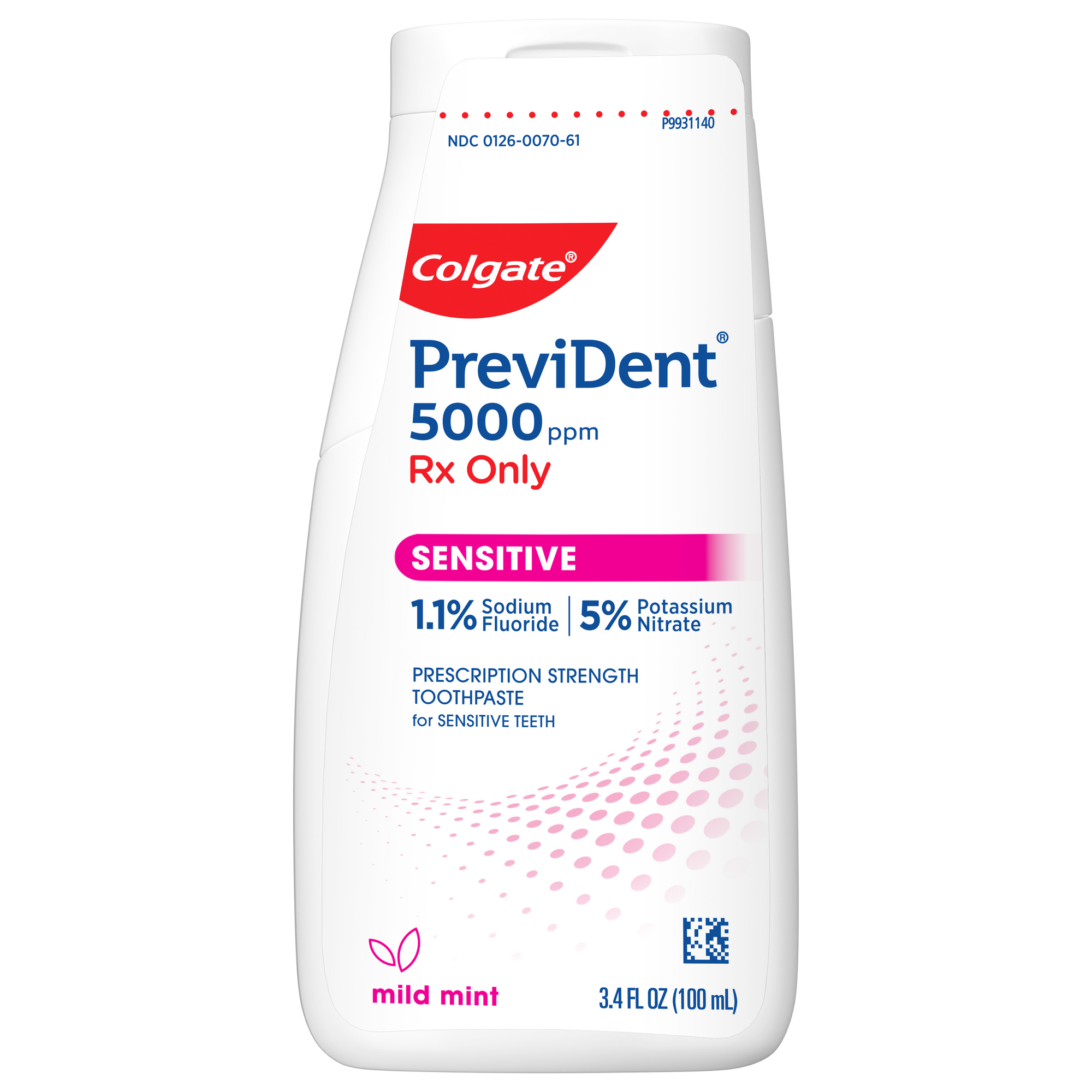
Colgate® PreviDent® 5000 Sensitive Protection is a low abrasion, prescription strength toothpaste for sensitive teeth and Prevents Cavities. Ask your dentist!
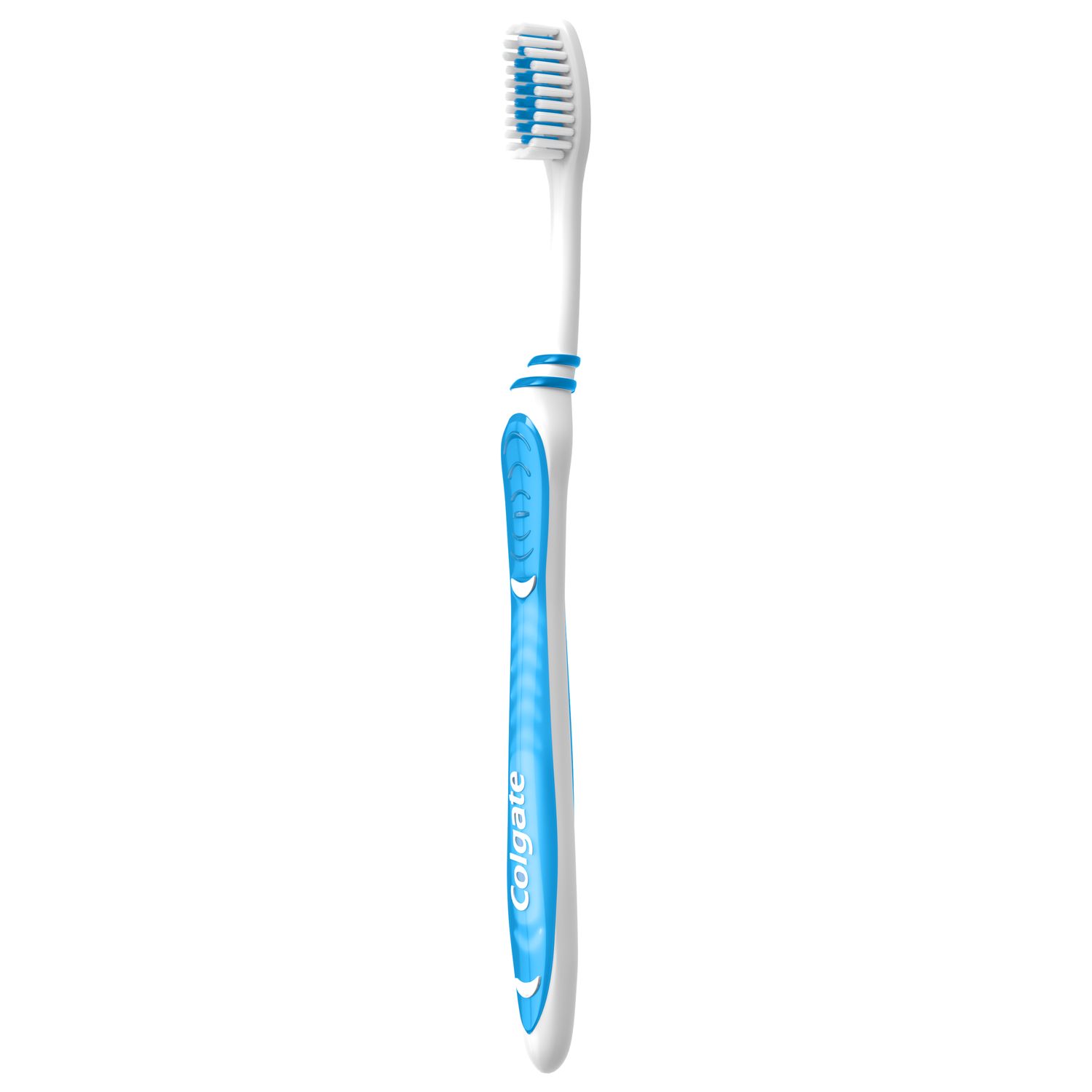
The Colgate® Wave Gum Comfort Toothbrush is designed for patients with sensitive gums who experience gum pain while brushing.
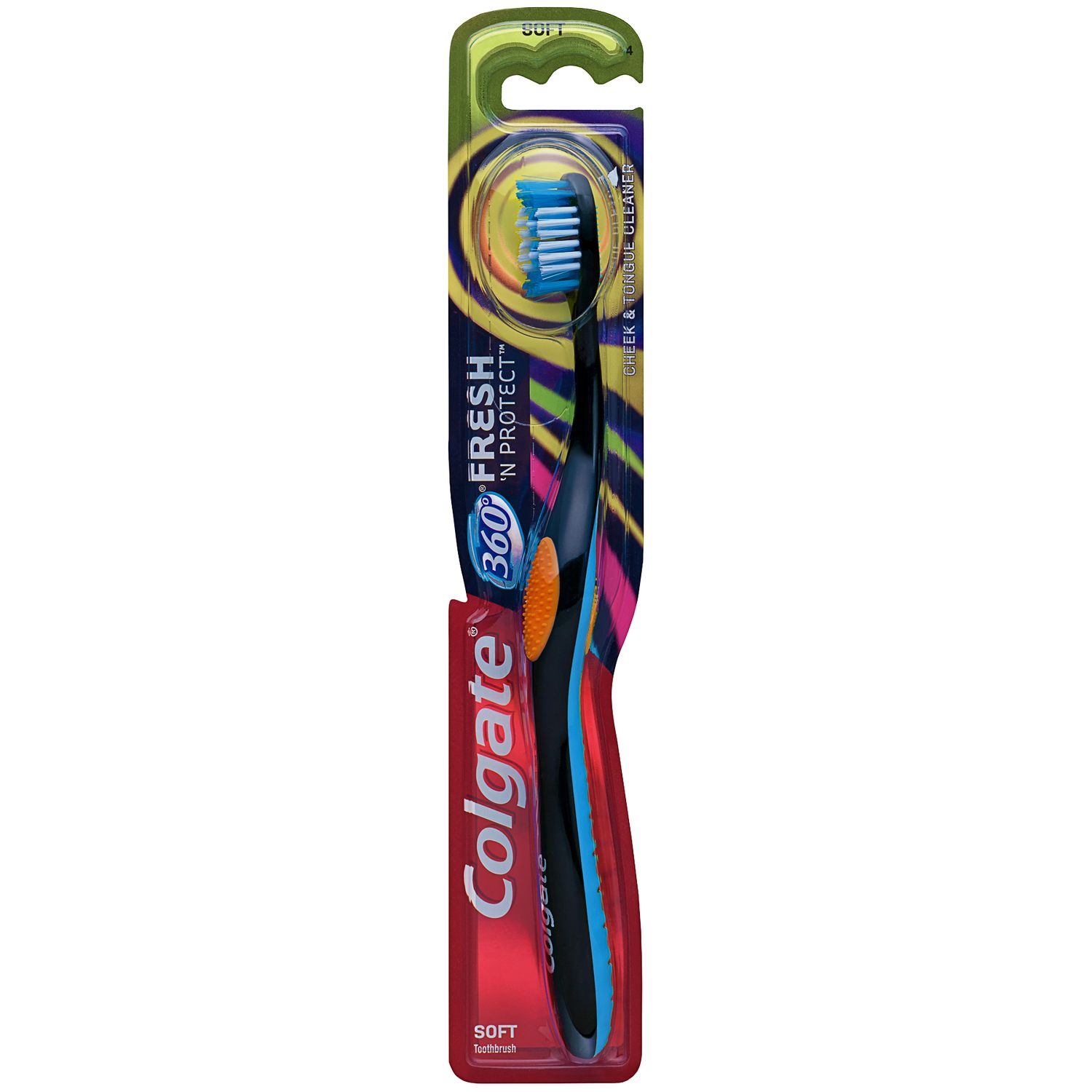
Colgate® 360°® Fresh 'N Protect manual toothbrush is perfect for older kids with changing teeth, and is designed with a cool cheek and tongue cleaner that helps remove more plaque and stains than an ordinary toothbrush.
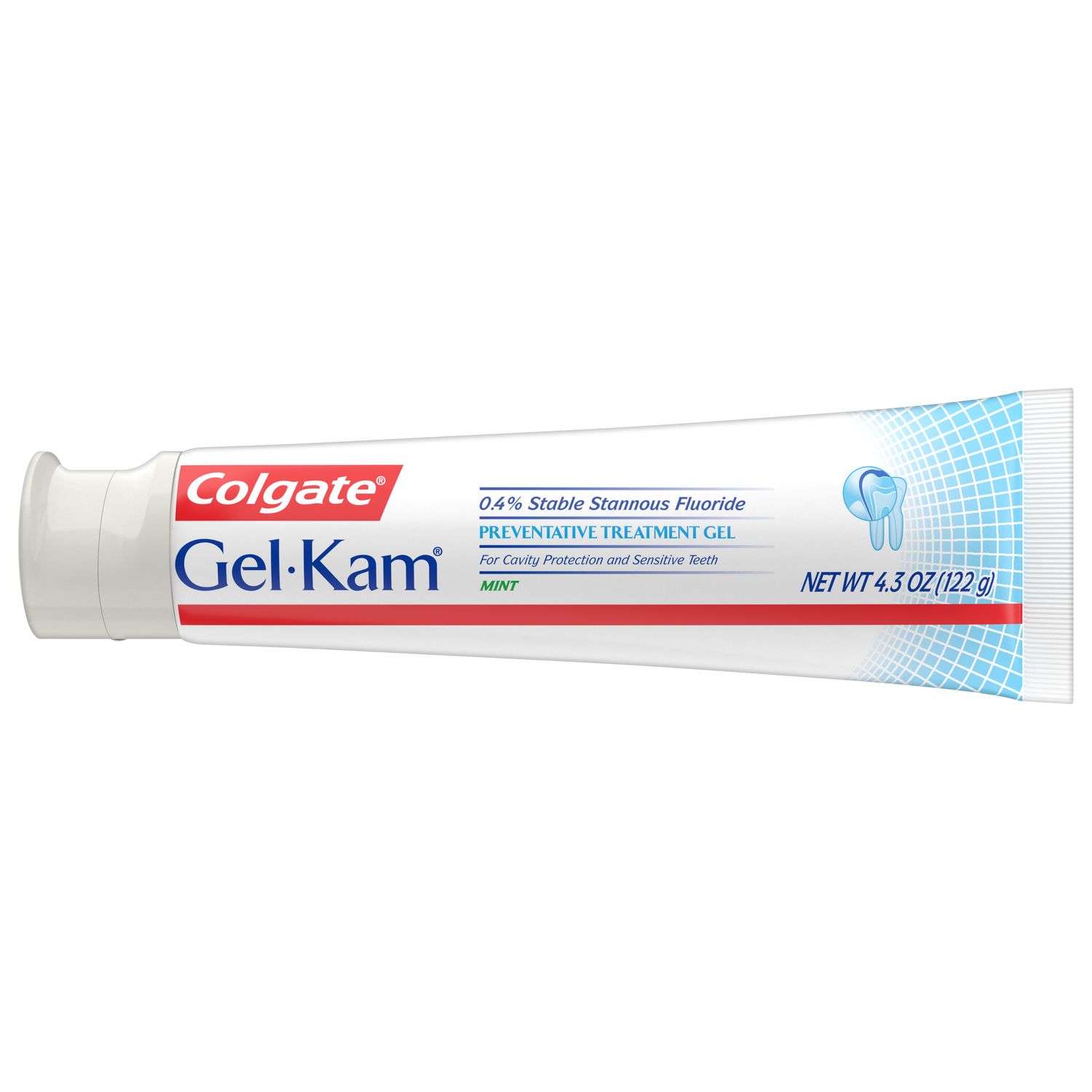
Colgate® Gel-Kam Preventative Treatment Gel prevents cavities and treats sensitive teeth with a clinically proven fluoride formula. Try it today!
Prescription Products
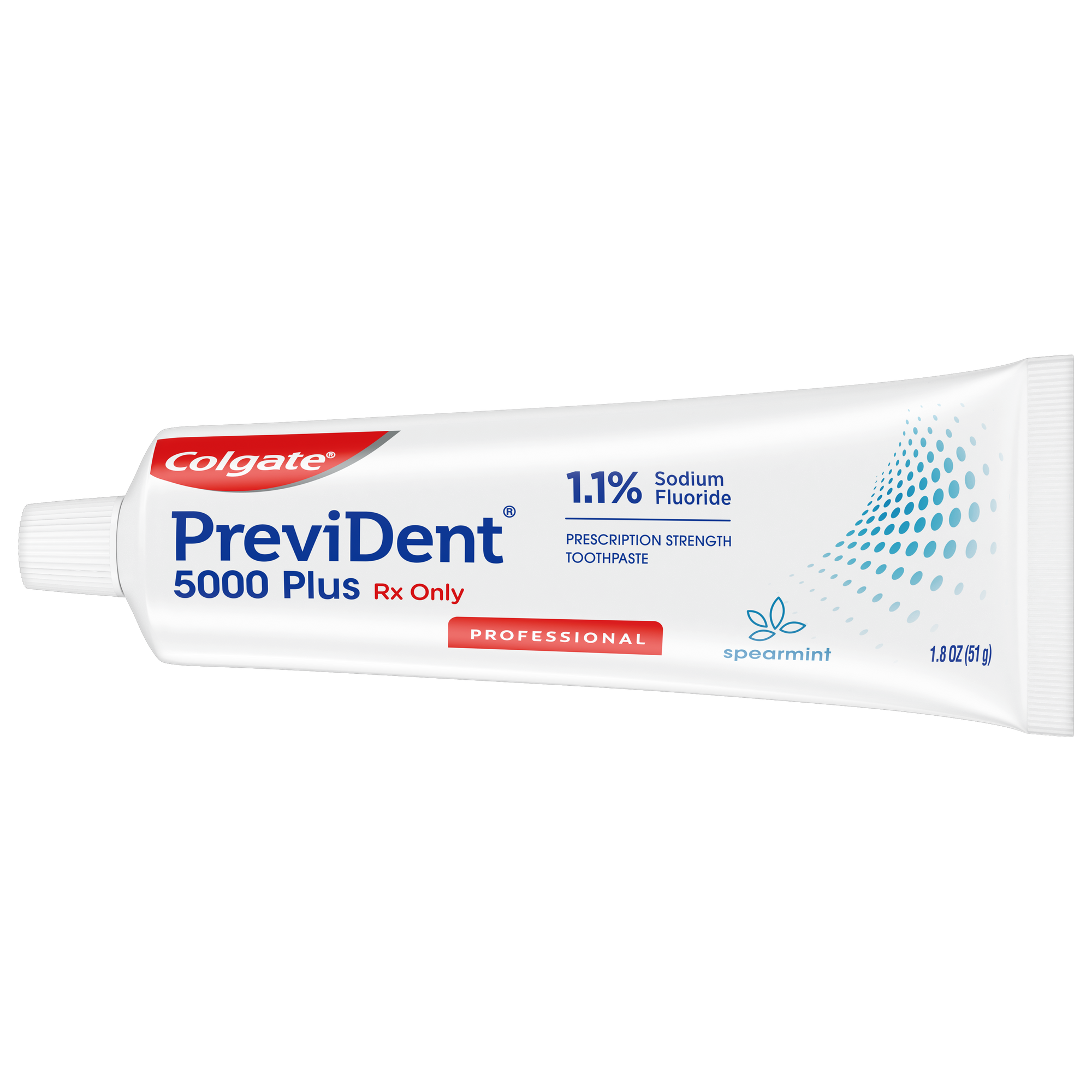
Colgate® PreviDent® 5000 Plus Prescription Toothpaste delivers 4x the fluoride than over-the-counter toothpastes & rinses. Contact your your dentist today!
Prescription Products
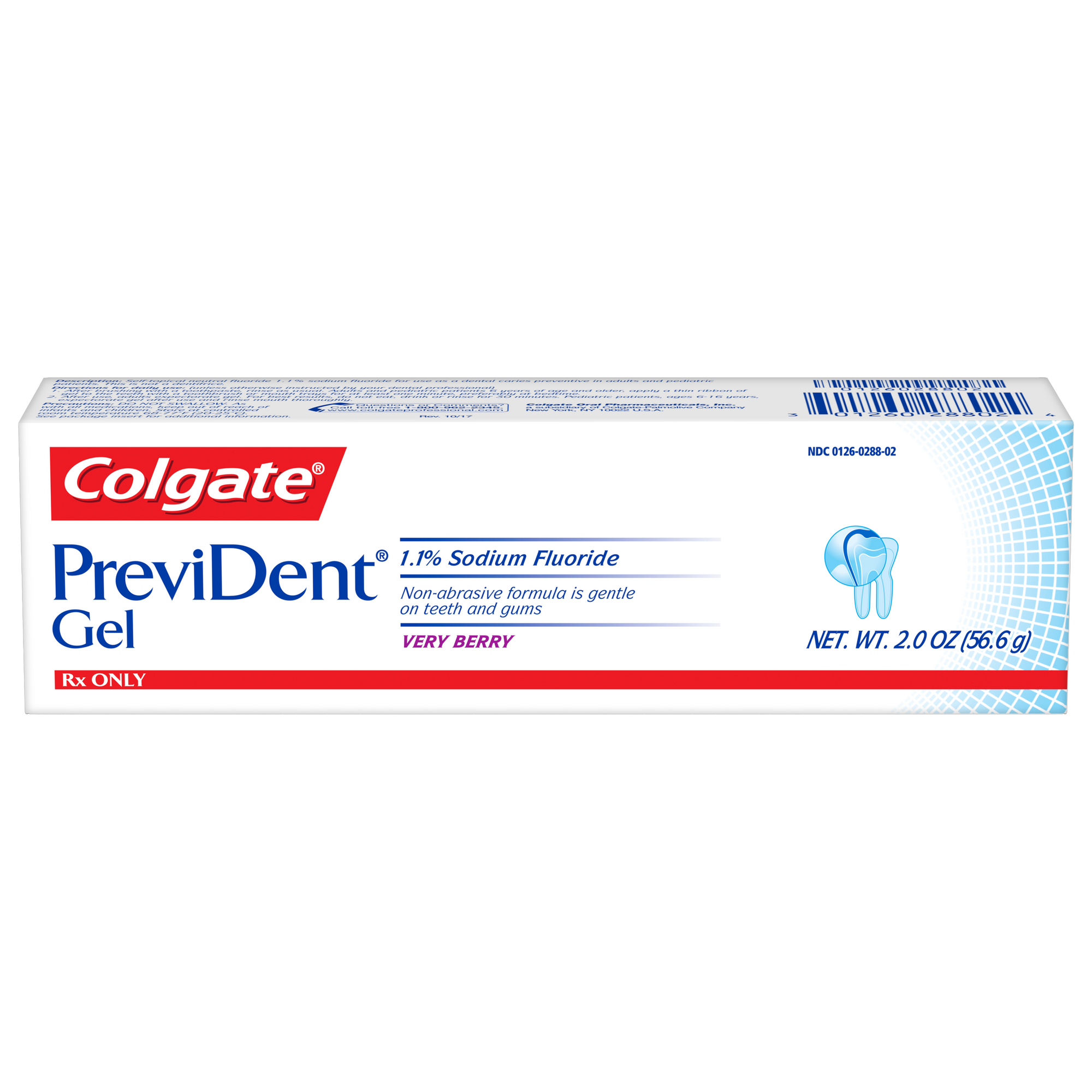
Colgate® PreviDent® Gel is an at-home, Rx Only brush-on gel treatment for those that require extra-strength fluoride protection. Contact your your dentist today!
Prescription Products
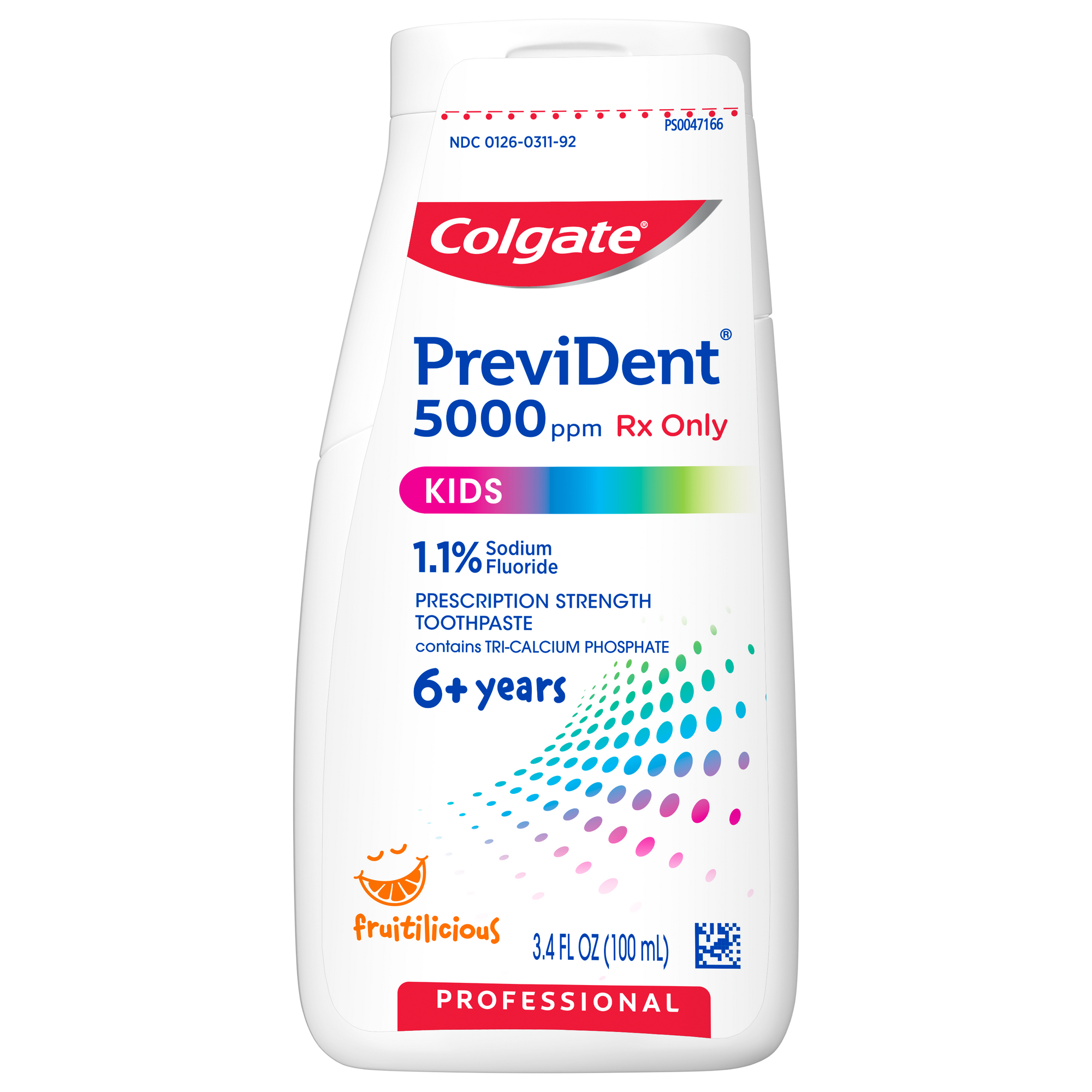
Help pepare children's smiles for the future. Colgate® PreviDent® 5000 Kids Prescription Toothpaste is a prescription strength fluoride toothpaste trusted by dental professionals. Contact your dentist today!
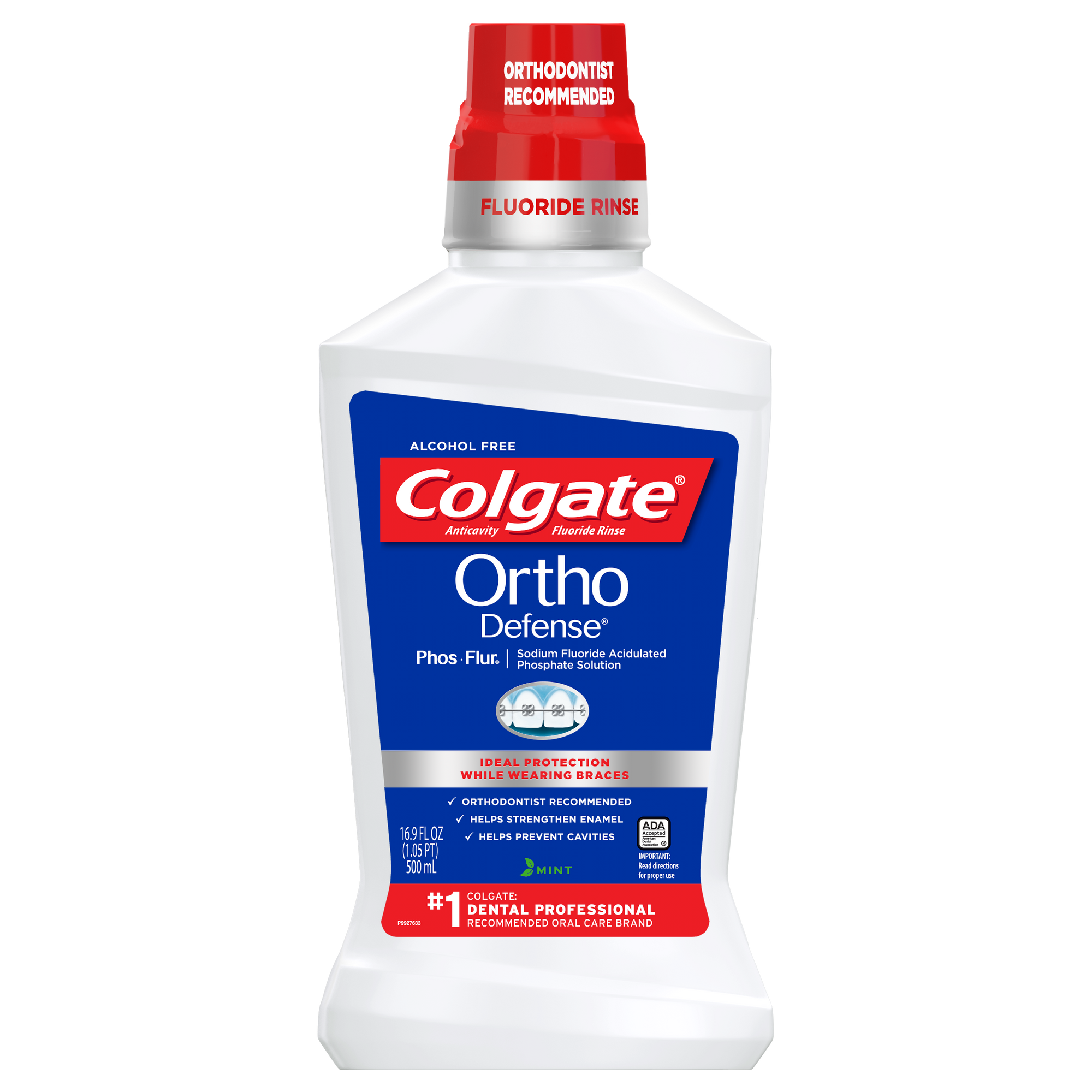
Safe, great-tasting and easy to use, Phos-Flur® Rinse is specially formulated for orthodontic patients and provides clinically proven fluoride protection.

Provide the Ultimate Protection for Patients
Whether patients are in the office or at home, Colgate PreviDent® prescription fluoride products provide the maximum cavity protection they need.

Gum Health Physical Tool
Assess your patients' gum health in your office using this tool and send them home with a personalized report.


